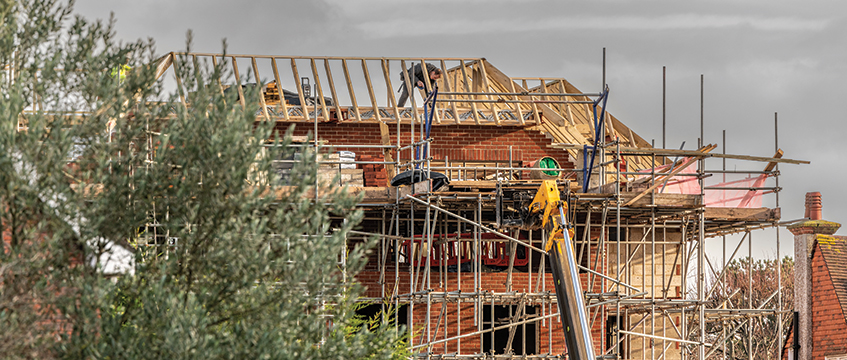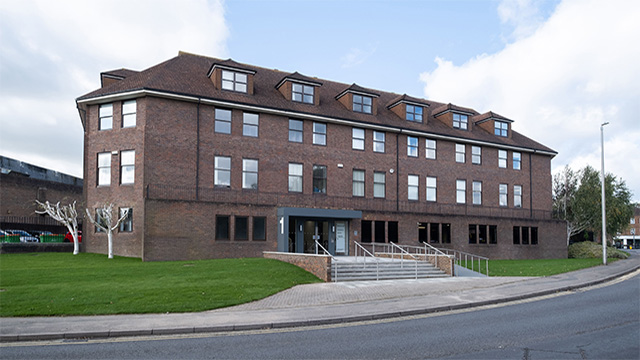Construction starts signal return of confidence
Construction starts showed a slight increase of 2% in the three months to the end of July, marking the first industry-wide lift in many months.
The latest index from construction data specialist Glenigan shows that starts on site were still 11% down on 2023 figures. However, a growth spurt in private housebuilding appears to be leading a reversal of fortune for a sector battered by strong economic headwinds over the past few years.
There was strong regional growth, with a near-unprecedented number of regions recording growth during the period, including the East Midlands, the South West, Wales, Northern Ireland, London, Yorkshire & the Humber and Scotland. Glenigan said this was a strong indication of sector resurgence in the coming year.
Construction starts showed a slight increase of 2% in the three months to the end of July, marking the first industry-wide lift in many months.
The latest index from construction data specialist Glenigan shows that starts on site were still 11% down on 2023 figures. However, a growth spurt in private housebuilding appears to be leading a reversal of fortune for a sector battered by strong economic headwinds over the past few years.
There was strong regional growth, with a near-unprecedented number of regions recording growth during the period, including the East Midlands, the South West, Wales, Northern Ireland, London, Yorkshire & the Humber and Scotland. Glenigan said this was a strong indication of sector resurgence in the coming year.
Allan Wilen, Glenigan’s economic director, said: “The industry should be buoyed by these results – a clear sign that confidence is starting to return to the market. This is evidenced by the spike in private housing starts, a long-standing barometer of investor conviction and consumer appetite. Developers will no doubt see plenty of opportunity as this vertical continues to thaw over the next six months, hopefully having a positive knock-on effect for other associated built environment assets.
“Social housing and non-residential sectors have remained relatively subdued, yet this is unsurprising. After all, the timing of planned projects has been disrupted by the general election and the new government’s commencement of a wide-sweeping review of programmes.”
He added that the uptick in civil engineering starts should be taken as short-lived, especially in light of this week’s announcement to pause and scale back road and rail projects.
The index covers all underlying projects with a total value of £100m or less.
Residential
Residential construction experienced a particularly healthy period. Despite start performance finishing 17% lower than a year ago, it rose by 12% during the three months to July 2024.
This overall boost was attributed to a spike in private housing starts, which rose by 25% following a weak start to the year as developers’ sentiment towards the prospects for the housing market improved. Despite the upturn, starts were still 12% lower than a year ago.
Social housing construction starting on site remained depressed, dropping by 23% against the preceding three months and by 32% compared with the previous year.
Non-residential
Non-residential performance was sluggish, with a few bright spots here and there.
Education starts held firm, with the value of underlying project starts slipping a mere 1% against the preceding three months and standing an impressive 24% up on 2023 levels.
Hotel and leisure starts increased by 10% against the preceding three months and were 18% up compared with the previous year, with various schemes contributing to the increase.
Retail starts slipped by 2% against the preceding three months but stood 8% up against the previous year.
Civil engineering work starting on site rose by 9% against the preceding three months and was 14% up compared with a year ago. This was boosted by a rebound in infrastructure starts, which rose by 21% against the preceding three months and by 45% on a year ago. Conversely, utility starts decreased by 8% against the preceding three months to stand 16% down against the previous year.
Elsewhere it was decline across the board. Industrial project starts experienced a poor period, with starts decreasing by 10% during the three months to July and by 34% compared with a year ago.
Health starts have continued to weaken, decreasing by 30% against the preceding three months and by 39% on the previous year. Office starts also performed poorly, decreasing by 8% against the preceding three months to stand 9% down on the previous year.
Community and amenity also weakened, decreasing by 44% against the preceding three months and standing 8% down on the previous year.
Regional outlook
Regional performance was generally impressive when compared with previous editions of the index.
Yorkshire and the Humber and Scotland continued to perform well, with the value of starts up by 10% and 4% respectively during the three months to July and by 5% and 4% on a year earlier.
Other strong performers included the East Midlands, which experienced a 33% rise in starts against the preceding three months but was still 11% lower than a year ago.
The South West, Wales and Northern Ireland also experienced double-digit growth of 16%, 10% and 39% respectively against the preceding three months, but the value of starts remained down from a year ago.
London experienced a 9% rise against the preceding three months but was 20% down against the previous year.
By contrast, starts in the East of England, the North East and the North West declined by 7%, 23% and 10% respectively against the previous three months.
Photo © Jon Santa Cruz/Shutterstock (12696935d)











